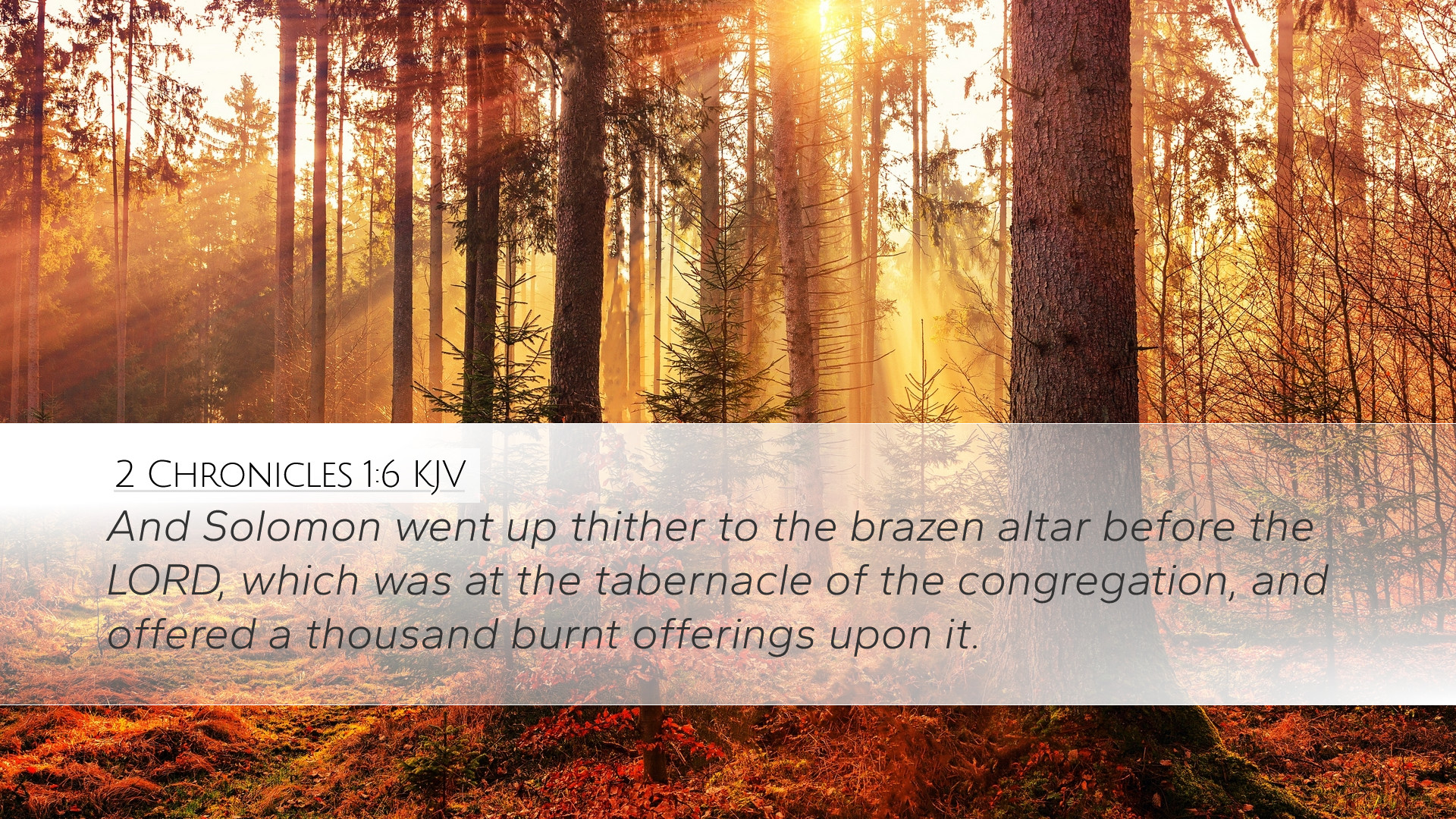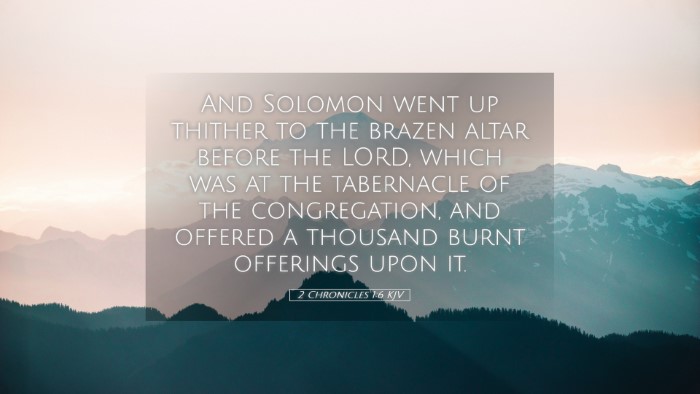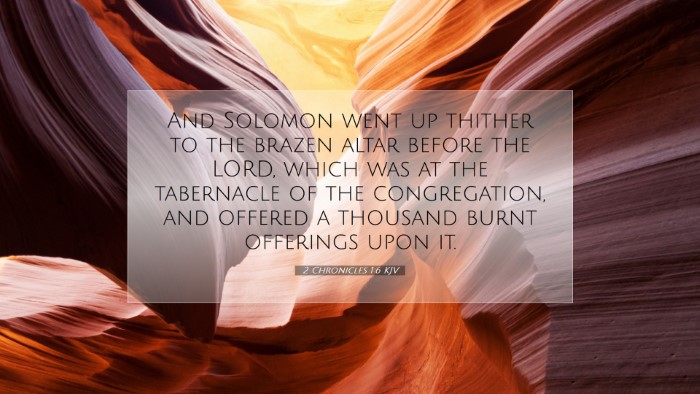Commentary on 2 Chronicles 1:6
Bible Verse: "And Solomon went up thither to the brasen altar before the LORD, which was at the tabernacle of the congregation, and offered a thousand burnt offerings upon it."
Introduction
2 Chronicles 1:6 presents a pivotal moment in Solomon's reign, showcasing his early dedication to God and his commitment to seeking divine guidance. This verse encapsulates the essence of worship, sacrifice, and the importance of approaching God with reverence. The public domain commentaries by Matthew Henry, Albert Barnes, and Adam Clarke provide profound insights into the theological implications and practical lessons gleaned from this passage.
Exegesis of the Verse
This verse depicts Solomon’s action of going to the brazen altar located at the tabernacle of the congregation. The brazen altar was significant as it was used for burnt offerings, symbolizing the covenantal relationship between God and His people through sacrifices. Solomon's offering of a thousand burnt offerings speaks to the magnitude of his devotion and desire for peace with God.
The Significance of Solomon's Actions
- Symbol of Dedication: Solomon’s choice to offer a thousand burnt offerings reflects a profound dedication to God as the structure of his kingdom was being established.
- Seeking Divine Guidance: This act can be interpreted as Solomon acknowledging his need for God’s wisdom in ruling his people, setting the tone for his future reign.
- Communal Worship: The act occurred at the tabernacle, representing corporate worship and the community's collective approach to God, an essential aspect of the Israelite faith.
Insights from Matthew Henry
Henry notes the earnestness with which Solomon approached the altar, suggesting that his multitude of offerings signified not just a ritual obligation but a sincere heart yearning for communion with God. He emphasizes how this action illustrates the importance of personal devotion and the prioritization of divine matters over worldly ones.
Insights from Albert Barnes
Barnes points out that the use of the brazen altar is significant as it indicates Solomon's alignment with the practices laid down in the Law. He interprets the offering of a thousand burnt offerings as an extraordinary act of reverence and humility before God, highlighting the need for leaders to seek spiritual endorsement in their governance.
Insights from Adam Clarke
Clarke discusses the symbolism of burnt offerings, noting that they represent total dedication and the surrender of oneself to God. He suggests that Solomon's actions were not merely ceremonial but were filled with meaning, signifying his recognition of God's mercy and his dependence on divine strength for his kingship.
Theological Implications
This verse has rich theological implications that extend beyond historical context. 2 Chronicles 1:6 reflects themes of:
- The Nature of Worship: True worship involves sacrifice; it must cost us something, reflecting our commitment to God.
- Divine Favor: Seeking God genuinely opens pathways for His favor, as seen later in Solomon's request for wisdom.
- The Role of Leadership: Leaders are called to model devotion and reliance on God, which can have profound impacts on their communities.
Practical Applications
For pastors, students, and theologians, several applications arise from this commentary:
- Prioritize Worship: Encourage regular, heartfelt worship within congregations as foundational to a vibrant faith community.
- Model Humility: Leaders must exemplify humility and reliance on God, particularly in decision-making processes.
- Teach Sacrifice: Impart the importance of sacrificial living as a demonstration of one’s faith and commitment to God.
Conclusion
2 Chronicles 1:6 stands as a testament to the heart of worship and the necessity of approaching God with sincere devotion. Solomon’s actions remind us that great leaders seek divine wisdom and favor through acts of worship that reflect true commitment. The insights drawn from esteemed commentaries enhance our understanding of this profound moment, encouraging a deeper exploration of our own worship practices and reliance on God.


